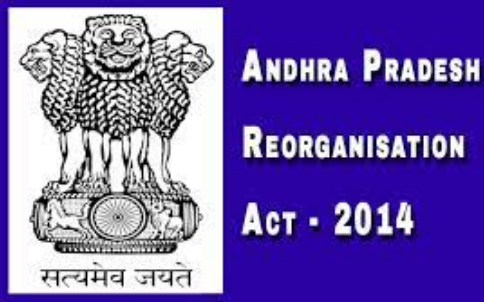Krishna waters – 8
Entire basis of the usurpation is claimed to be the ‘authority’ delegated to Union by the Andhra Pradesh Reorganization Act 2014, dividing the state into two.
The Act enables the Union to constitute two River Management Boards and decide their jurisdiction. Section 84 provides for Apex Council for Godavari and Krishna River Water Resources and their Management Boards. Union Irrigation Minister will be chairperson, while two CMs will be members. This was entrusted with duty to resolve any dispute amicably.
Also read: Why the shares are not reallocated?
Subsection (3) says: (i) supervision of the functioning of the Godavari River Management Board and Krishna River Management Board; (ii) planning and approval of proposals for construction of new projects, if any, based on Godavari or Krishna river water, after getting the proposal appraised and recommended by the River Management Boards and by the Central Water Commission, wherever required; (iii) resolution of any dispute amicably arising out of the sharing of river waters through negotiations and mutual agreement between the successor States; (iv) reference of any disputes not covered under Krishna Water Disputes Tribunal, to a Tribunal to be constituted under the Inter-State River Water Disputes Act, 1956 (33 of 1956).
Also read: The Centre Robs Rivers of States
When this is the prescription, how can Union take over the complete ownership of two rivers and impose entire liabilities on two states? It is a clear violation of Parliamentary mandate through 2014 Act. Paradox is that the Centre claims that it made these two notifications based on the power given under Section 84, which, in fact, did not give this power.
Also read: The law for River Water Disputes
Boards constituted in 2014 itself
As per Section 85 the Boards were constituted in 2014. These boards will be chaired by Secretary or Additional Secretary of Government of India to be appointed by Centre, and two members nominated by two states plus one expert nominated centre. Its member secretary will be Chief Engineer rank officer to be appointed by Centre. Functions include regulation of supply of water from the projects and implementation of awards. They have to make appraisal of proposals of new projects.
Also read: Is it constitutional to take away the Rivers?
Section 87 talks about the Jurisdiction of Board. It says: (1) The Board shall ordinarily exercise jurisdiction on Godavari and Krishna rivers in regard to any of the projects over headworks (barrages, dams, reservoirs, regulating structures), part of canal network and transmission lines necessary to deliver water or power to the States concerned, as may be notified by the Central Government, having regard to the awards, if any, made by the Tribunals constituted under the Inter-State River Water Disputes Act, 1956. (2) If any question arises as to whether the Board has jurisdiction under sub-section (1) over any project referred thereto, the same shall be referred to the Central Government for decision thereon. These are the powers prescribed by Act 2014.
Also read: River Management Boards
AP surrenders its sovereignty to centre
In the name of deciding the jurisdiction of these Boards which was thought about in 2020, that is after 6 years, the Centre has issued taking over notifications on 15th July 2021. Deciding jurisdiction or regulation does not mean taking over the assets and all controls depriving the riparian states of their rights over the rivers running through their states. It is shocking that the Andhra Pradesh welcomed this taking over. It means submitting their sovereignty at the feet of the emperor in Delhi. Telangana Government questioned this saying how can the Centre take over this without reallocating the shares in the water especially after a new state was born and seeking the relook or re-distribution of water.
Also read: The Constitutional Necessity of Separation
The Centre under Modi’s NDA has already proposed two river Bills which will deprive the states and empower a few top level Babus the ‘owners’ and ‘managers’ of rivers without entrusting any responsibility of protecting, cleansing or rejuvenating the rivers or amicably settling the disputes. When states have spent huge amount on various projects, how can the Centre deprive them of their property? If there is a dispute between two or three states, it is the duty of the Centre to manage the affairs and see that dispute is settled. But it cannot abdicate this constitutional duty and own the rivers at the cost of state’s autonomy and sovereignty. When Centre was asked to manage, it has chosen to damage.
Now, with taking over, it became absolutely a political issue. The NDA government at centre may not take a decision unless it will increase prospects of BJP coming to power. The TRS Government of Telangana, formally opposed the notifications. It is not known how Telangana would fight for justifiable share or protect its autonomy given by the Constitution.
Also read: CJI’s worthy solution to Water Dispute
(The end)




